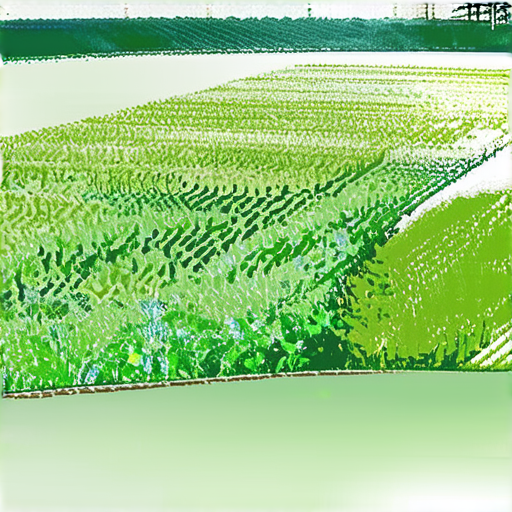As the world grapples with the pressing issues of climate change, soil degradation, and food security, sustainable farming practices have become increasingly important. One innovative approach gaining traction is the use of biochar, a type of charcoal made from organic materials that has been shown to improve soil health, reduce greenhouse gas emissions, and promote biodiversity. However, despite its numerous benefits, biochar production and implementation come with their own set of challenges and controversies. In this article, we will delve into the world of sustainable farming with biochar, exploring its benefits, drawbacks, and practical applications, as well as discussing the latest research and trends in this rapidly evolving field.

Is Biochar Production Sustainable?
At Pyrolysium, we believe that biochar production has the potential to be a sustainable solution for various environmental challenges.
-
Sustainable Development Goals
-
Carbon Sequestration
-
Soil Erosion Prevention
-
Waste Management
-
Environmental Benefits
-
Air Pollution Reduction
-
Water Conservation
-
Pest and Disease Control
-
Challenges and Opportunities
-
Scalability and Cost-Effectiveness
-
Regulatory Frameworks
-
Public Awareness and Education
-
Conclusion
-
Impact on Soil pH
-
Contamination Risks
-
Carbon Sequestration Limitations
-
Economic and Logistical Challenges
-
Competition with Food Crops
-
Lack of Standardization
- Poultry Litter: A readily available feedstock, poultry litter is rich in nutrients and produces high-quality biochar.
- Switchgrass: This perennial grass is ideal for large-scale biochar production due to its high energy density and low moisture content.
- Rice Hulls: Rice hulls are abundant and inexpensive, making them a great option for small-scale biochar producers.
- Corn Stover: Corn stover is another common crop residue that can be converted into biochar, offering a sustainable alternative to traditional fertilizers.
- Vinetree Prunings: Vinetree prunings are a nutrient-rich feedstock that can be used to produce high-quality biochar.
- Coconut Husks: Coconut husks are a renewable resource that can be converted into biochar, reducing waste and promoting sustainable agriculture.
- Wood Chips: Wood chips are a versatile feedstock that can be used to produce biochar, offering a carbon-negative solution for waste management.
- Sugarcane Bagasse: Sugarcane bagasse is a lignocellulosic biomass that can be converted into biochar, providing a sustainable alternative to fossil fuels.
- Straw: Straw is a widely available crop residue that can be used to produce biochar, reducing greenhouse gas emissions and promoting soil health.
- Carbon Sequestration: Biochar production helps sequester carbon in soils, reducing greenhouse gas emissions and mitigating climate change.
- Soil Health: Biochar improves soil fertility, structure, and water-holding capacity, promoting healthy plant growth and increasing crop yields.
- Waste Reduction: Biochar production reduces waste disposal costs and minimizes the environmental impacts associated with landfills and incineration.
- Pyrolysis-based biochar: Typically ranges from $300 to $600 per ton, with an average price of $450.
- Gasification-based biochar: Can range from $250 to $500 per ton, with an average price of $375.
- Biomass-based biochar: May cost between $200 and $400 per ton, with an average price of $300.
Biochar aligns with several United Nations’ Sustainable Development Goals (SDGs), particularly SDG 13 (Climate Action), SDG 15 (Life on Land), and SDG 12 (Responsible Consumption and Production).
Biochar can act as a long-term carbon sink, reducing atmospheric CO2 levels and mitigating climate change effects.
By adding organic matter to soils, biochar helps prevent erosion, improves soil fertility, and enhances crop yields.
Biochar production utilizes waste biomass, reducing landfill waste and promoting a circular economy.
Biochar offers numerous environmental advantages, including:
Biochar can capture pollutants and heavy metals, minimizing air pollution and its associated health risks.
By improving soil water retention, biochar reduces the need for irrigation and minimizes water waste.
Biochar’s unique properties can repel pests and diseases, reducing the need for chemical pesticides and fertilizers.
While biochar production holds great promise, there are still challenges to overcome, such as:
Large-scale biochar production requires significant investments in infrastructure and technology.
Clear regulations and standards are necessary to ensure safe and responsible biochar production and application.
Raising public awareness about biochar benefits and applications is crucial for widespread adoption.
In conclusion, biochar production has the potential to be a sustainable solution for various environmental challenges, aligning with several UN SDGs and offering numerous environmental benefits.
We at Pyrolysium are committed to advancing biochar research, development, and implementation, working towards a more sustainable future for our planet.
Negatives of Biochar
Biochar has several potential drawbacks that need to be considered.
Biochar can increase soil pH levels, which may lead to nutrient deficiencies in plants that prefer acidic conditions.
If not produced and handled properly, biochar can contain contaminants like heavy metals, pesticides, or industrial pollutants.
The effectiveness of biochar in sequestering carbon depends on various factors, including production methods, storage conditions, and long-term stability.
Large-scale production and distribution of biochar can be costly and logistically complex, potentially limiting its adoption and scalability.
In some cases, land allocated for biochar production might otherwise be used for food crops, potentially exacerbating food insecurity issues.
The biochar industry lacks standardized production protocols, quality control measures, and certification processes, which can make it difficult to ensure consistent product quality.
These concerns highlight the need for further research, regulation, and industry development to mitigate the negative aspects of biochar and maximize its benefits.

Best Crops for Biochar Production
We specialize in transforming organic waste into valuable resources through pyrolysis, and we’re excited to share our expertise on the best crops for biochar production.
When selecting the best crops for biochar production, consider factors such as availability, cost, and energy density. By choosing the right feedstocks, you can maximize the efficiency and effectiveness of your biochar production process.
Benefits of Biochar Production
Get Started with Biochar Production Today!
Contact us to learn more about our biochar production services and how we can help you transform organic waste into valuable resources.

Cost of 1 Ton of Biochar
The cost of 1 ton of biochar varies depending on several factors, including production methods, raw materials, and regional pricing.
These prices are subject to change based on market fluctuations, transportation costs, and local demand.
Factors Affecting Biochar Pricing
- Raw material costs: The type and quality of feedstock used for biochar production significantly impact its final cost.
- Production efficiency: More efficient production processes can lead to lower costs and higher-quality biochar.
- Regional pricing: Prices may vary depending on local market conditions, competition, and transportation costs.
Conclusion
The cost of 1 ton of biochar depends on various factors, including production methods, raw materials, and regional pricing. Understanding these factors can help stakeholders make informed decisions about biochar adoption and utilization.
Cost of Biochar Per Acre
We understand that understanding the cost of biochar per acre is crucial for making informed decisions about its adoption.
- The cost of wood biochar can vary depending on several factors, including the type of feedstock used, production methods, and application rates.
- A general estimate for the cost of wood biochar is around $3,580 per acre, based on a total cost of $350 per ton for the biochar itself and $8 per ton for application costs.
- However, it’s essential to note that these costs may fluctuate depending on various market and operational factors.
- For instance, the cost of feedstocks, labor, and equipment can impact the overall cost of producing and applying biochar.
- Additionally, the cost-effectiveness of biochar can be influenced by its potential benefits, such as improved soil health, increased crop yields, and reduced greenhouse gas emissions.
- When considering the cost of biochar per acre, it’s also important to factor in the long-term benefits and potential savings associated with its use.
- By adopting sustainable practices and optimizing production processes, farmers and land managers can potentially reduce the cost of biochar per acre and increase its overall value proposition.
- At Pyrolysium, we’re committed to helping our customers navigate the complexities of biochar production and application, ensuring that they get the most out of this valuable resource.
- Our team of experts is dedicated to providing personalized support, education, and training to help you maximize the benefits of biochar and minimize its costs.
- Contact us today to learn more about how we can help you unlock the full potential of biochar and achieve your sustainability goals.
Factors Influencing Biochar Cost
- Type of Feedstock Used
- Production Methods
- Application Rates
- Market and Operational Factors
Benefits of Biochar
- Improved Soil Health
- Increased Crop Yields
- Reduced Greenhouse Gas Emissions
Long-Term Benefits of Biochar
- Potential Savings Associated with Its Use
- Sustainable Practices and Optimized Production Processes

The Biggest Buyers of Biochar
We’re proud to say that our community has been instrumental in driving the adoption of biochar technology.
- Agricultural Companies: Many large agricultural companies have started incorporating biochar into their soil amendment programs due to its ability to improve soil health and increase crop yields.
- Sustainable Landscaping Firms: Sustainable landscaping firms are also major buyers of biochar, using it to enhance soil fertility and support ecosystem services in urban and rural landscapes.
- Environmental Organizations: Environmental organizations focused on reforestation, afforestation, and habitat restoration are increasingly turning to biochar as a tool to sequester carbon and promote biodiversity.
- Government Agencies: Government agencies responsible for environmental protection and sustainable development are investing in biochar projects to mitigate climate change and promote sustainable land use practices.
In addition to these sectors, we’ve seen growing interest in biochar from individual farmers, gardeners, and homeowners looking to improve their soil health and reduce their environmental footprint.
Key Players in the Biochar Market
- Pyrolysium: As a leading provider of biochar technology and education, we’re committed to empowering individuals and communities to adopt sustainable practices and reduce their environmental impact.
- Carbon Engineering: Carbon Engineering is a prominent player in the biochar market, offering a range of products and services to support carbon sequestration and soil remediation efforts.
- Verdant Technologies: Verdant Technologies is a cutting-edge company developing innovative biochar-based solutions for agriculture, forestry, and urban ecosystems.
These companies, along with many others, are helping to drive the growth and adoption of biochar technology worldwide.
Why Buy Biochar?
Biochar offers numerous benefits, including improved soil fertility, increased crop yields, and enhanced ecosystem services.
- Soil Health: Biochar helps to improve soil structure, increase water retention, and support beneficial microorganisms.
- Crop Yields: By improving soil health and increasing nutrient availability, biochar can lead to significant increases in crop yields and food security.
- Ecosystem Services: Biochar supports biodiversity, mitigates climate change, and promotes ecosystem resilience.
As the demand for sustainable solutions continues to grow, we expect to see even greater adoption of biochar technology in the years to come.

0 Comments